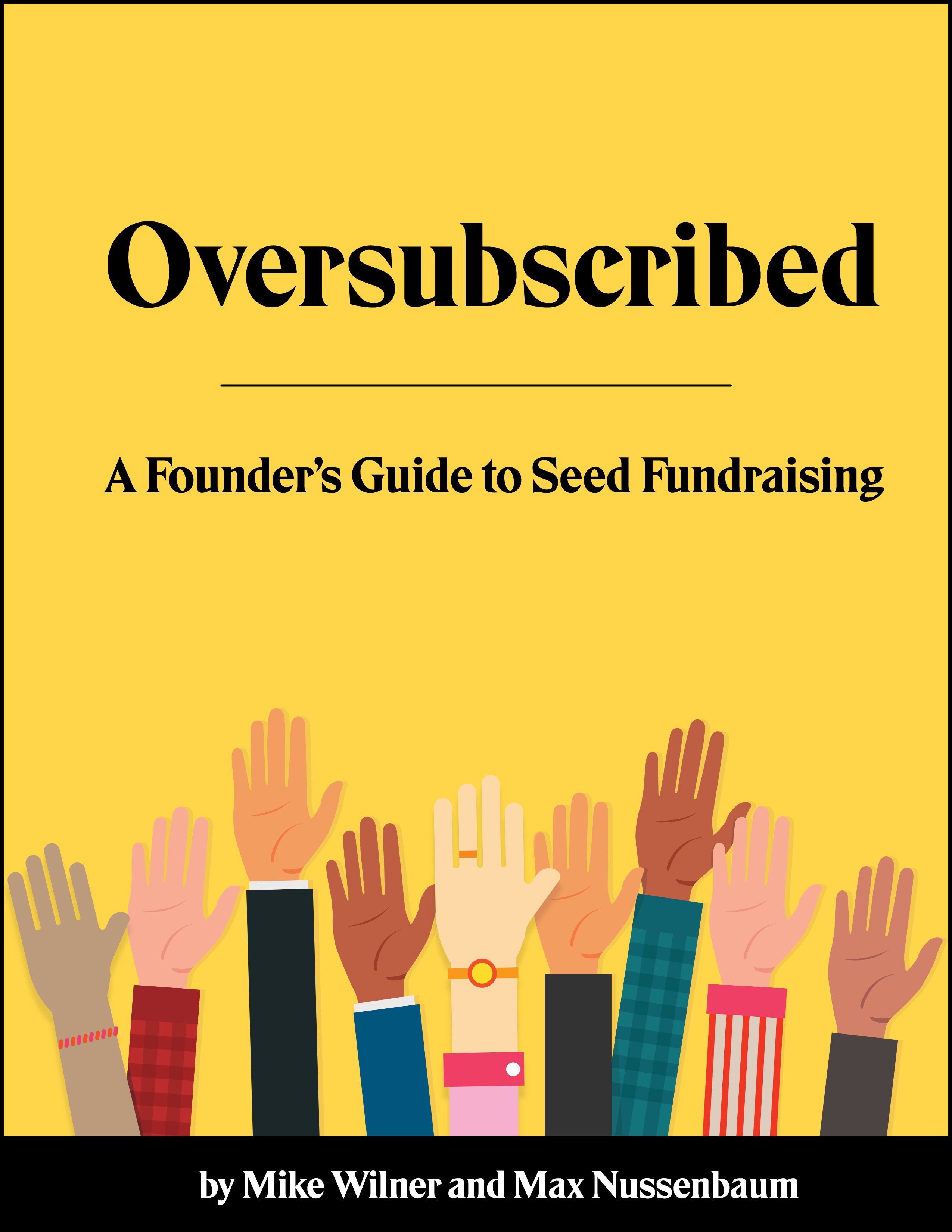The trifecta of storytelling, intellectual honesty, and conviction (Oversubscribed Weekly #30)
July 18, 2019Mike here.
In our book and this newsletter, Max and I talk a lot about the practical ways in which founders can generate competition (and thus FOMO) for their round to increase their chances of success.
At the same, there is a softer side to fundraising. Investors make decisions based on more than just FOMO at the seed stage – they need to be emotionally bought into you as a founder and the vision you’re pitching. Note that this not only applies to investors, but early employees that you recruit (who you should also think of as investors). There are three things you need to do well to get investors and early employees emotionally sold:
1. Be a good storyteller: Can you talk about your story in a way that shows why what you’re building is so urgently needed? Can you convince them that you’re the one to be building this type of business? Can you show the investor what your business and the world will look like if you’re successful?
2. Demonstrate intellectual rigor and honesty: Can you show that you’ve thought about the challenges and risks about the business and understand them deeply? Are you humble enough to areas of risk that you need to address? Do you understand the biggest obstacles that would cause your business to fail? Are you able to talk about the big risks openly and honestly without getting defensive? Are you able to take a step back and create emotional distance between yourself and your business to talk about the business objectively?
3. Have conviction: while honestly acknowledging the risks, challenges, and possibility of failure do you have infectious conviction that your team will be successful? Can you demonstrate that if anyone is to be successful in this space, there’s a good chance that it will be you? Can you show that in the face of challenges, your conviction will help carry your team?
Doing all three simultaneously is really hard and rare. I’ve talked to investors who gone from first conversation to wiring money within 4 days after meeting founders who do all three of these things well.
Personally, with my first startup, I struggled to balance all three. With my first angel round, I demonstrated intellectual rigor/honesty and conviction very well, but wasn’t the best at storytelling. Max introduced me to one of his angel investors, who passed on me, saying, “I believe in you and this all makes sense. But the good thing about being an angel is that I can make decisions emotionally, and I’m just not there on this. Best of luck.”
In my seed round, I overcorrected and got really good at storytelling and conviction, but had lost ground on my intellectual rigor/honesty. As I tell founders I mentor now, I found myself “drunk on my own conviction.” As a result, I was very successful in selling casual angels but had less success when talking to experienced, professional early stage startup investors. This applied to recruiting as well – I was very good at recruiting young top talent to our startup, but struggled to recruit more experienced team members. I attribute our failures (in fundraising and in operating) to my being drunk on my own conviction and losing intellectual rigor and honesty.
So think about it: are you balancing all three of these? Where do you need to need to improve? These are things that are not only important when raising money, but critical to being a good startup founder and operator (all of the time).
A tweet thread to read (slight non sequitur)
To understand the emotions that go into investment decisions, you have to put yourself in the shoes of the investors on the other side of the table. This tweet thread from Cyan Banister, a very active angel investor in the Bay Area, will help you more deeply understand investor motivations and emotions when it comes to making angel investments. Embrace the nuance and get to know how investors think (click on the tweet and read the thread).
Rant: People sometimes use the term “angels” loosely and it really is upsetting, here’s why…
— Cyan (@cyantist) July 16, 2019

